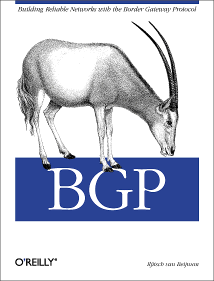BGP Expert Test
Answer these ten questions and we'll tell you if you're BGP expert. Enjoy!
For some questions, more than one answer is correct.
We also have
another set of questions and answers
for self-study purposes.
Question 1
What is the version of BGP that first supported CIDR?
BGP version 1
BGP version 2
BGP version 3
BGP version 4
BGP version 5
None of the above
Question 2
What are valid BGP terms? (Multiple answers are possible.)
Communities
Conglomerates
Confederations
Corporations
None of the above
Question 3
On top of which protocol does BGP run?
Directly on top of IP
UDP
TCP
None of the above
Question 4
Suppose the IPv4 global BGP table has 880000 prefixes.
A router connects to two ISPs that provide a full BGP feed
and one peer that advertises 6000 prefixes.
The network also has 4000 prefixes in OSPF.
How many entries does the router have in its BGP table (BGP RIB)?
1.77 million
1.766 million
0.886 million
0.884 million
0.88 million
Question 5
The same numbers as in question 4:
how many entries does the router have in its main routing table (main RIB)?
1.77 million
1.766 million
0.886 million
0.884 million
0.88 million
Question 6
In the global routing table, sometimes the same AS number shows up more
than once in an AS path.
Yes, that's normal BGP behavior
Yes, if a router is configured to make the AS path longer
No
Question 7
When ARIN, RIPE or the APNIC assigns you the range
221.30.48.0 - 221.30.50.255 out of a 221.30.48.0 - 221.30.63.255
allocation, you should announce over BGP:
Three /24's
A /23 and a /24
A /22
A /20
A /19
None of the above
Question 8
What do you need to use IPv6 with BGP?
BGP version 3
BGP version 4
BGP version 5
BGP version 6
BGP multiprotocol extensions
None of the above
Question 9
Local preference is:
Local to a single router
Local to a single AS
Local to a single neighbor connection
None of the above
Question 10
When selecting the best path, the BGP protocol takes into account
the following information in the stated order:
AS path, multi-exit discriminator, local preference
AS path, local preference, multi-exit discriminator
Local preference, AS path, multi-exit discriminator
Multi-exit discriminator, AS path, local preference
None of the above
|






